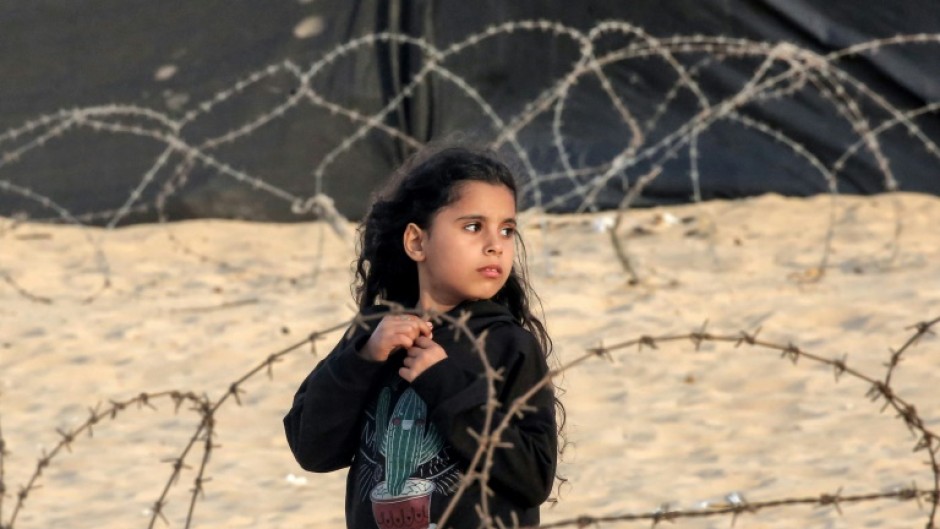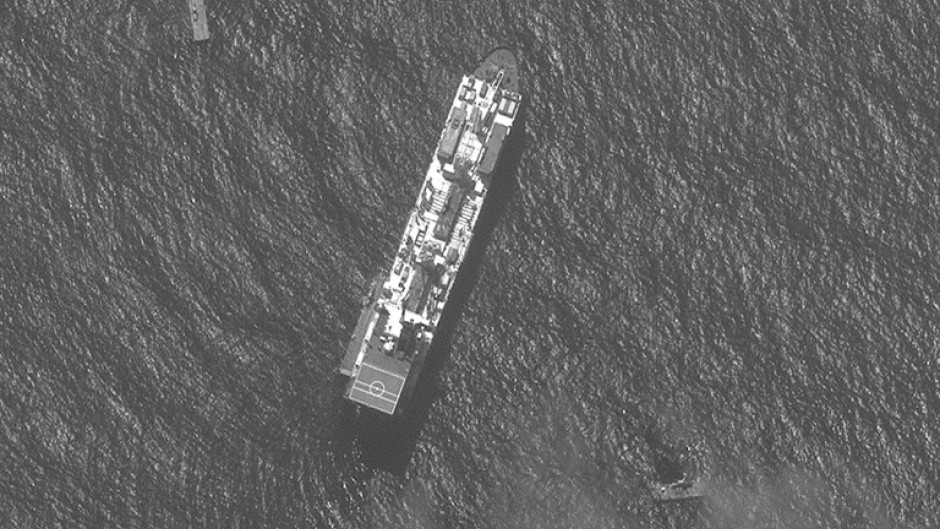US top diplomat Antony Blinken urged Hamas on Wednesday to accept a Gaza truce plan despite an Israeli warning that the army will keep fighting the Palestinian militant group after any ceasefire.
"There is a very strong proposal on the table right now," said Blinken, in Israel on his seventh Middle East crisis tour since the war broke out in October. "Hamas needs to say yes and needs to get this done."
Hamas said it would respond "within a very short period" to a plan proposed by mediators to halt the fighting for 40 days and to exchange a few dozen hostages for many more Palestinian prisoners.
But the group's aim remains "an end to this war", senior Hamas official Suhail al-Hindi told AFP by telephone -- a goal at odds with the stated position of Israel's hawkish Prime Minister Benjamin Netanyahu.
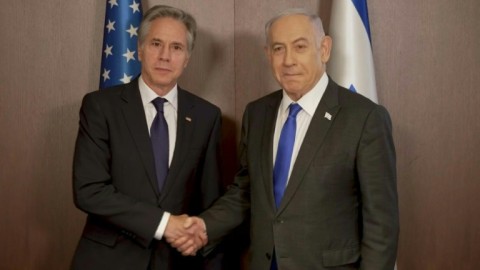
"We will enter Rafah and we will eliminate the Hamas battalions there with or without a deal," Netanyahu told a group representing families of remaining hostages in Gaza.
UN chief Antonio Guterres warned that an Israeli assault on Rafah would "be an unbearable escalation, killing thousands more civilians and forcing hundreds of thousands to flee".
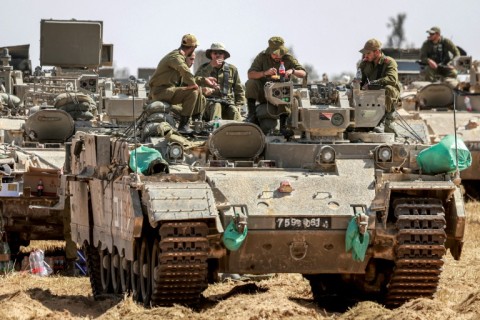
Netanyahu made his threat shortly before the arrival of Blinken and at a time of tensions between the traditional allies as the Gaza war has sparked global anger and weeks of pro-Palestinian demonstrations on US university campuses.
In talks with Netanyahu on Wednesday, Blinken "reiterated the United States' clear position on Rafah", said State Department spokesman Matthew Miller, two days after Blinken had last voiced opposition to an assault.
- 'Sustainable calm' -
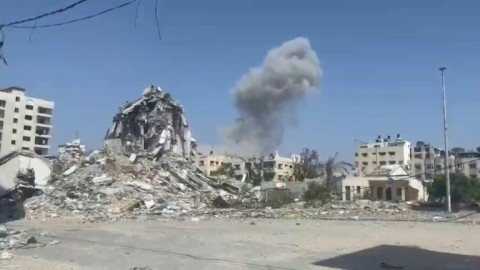
An Israeli official told AFP the government will wait for an answer from Hamas until Wednesday night before it decides whether to send its envoys back to the indirect talks in Egypt's capital.
Hindi of Hamas, speaking by phone from an undisclosed location, said there is "great interest from Hamas and all Palestinian resistance factions to end this insane war on the Palestinian people, which has consumed everything".
"But it will not be at any cost," he added, stressing that the group "cannot under any circumstances raise the white flag or surrender to the conditions of the Israeli enemy".
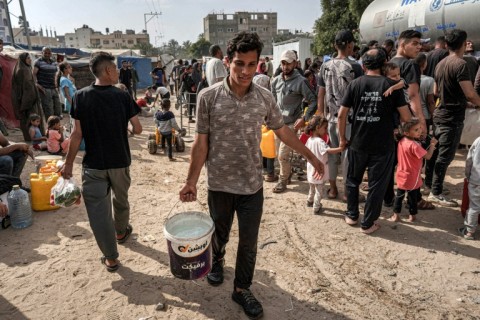
Egypt's Foreign Minister Sameh Shoukry called on all sides to "show the necessary flexibility" to achieve a deal "that stops the bloodshed of Palestinians", during a visit to Cairo by his French counterpart Stephane Sejourne.
Analysts voiced doubts whether Hamas would sign up to another temporary ceasefire like a week-long truce in November that saw more than 100 hostages released, knowing that Israeli troops could resume their onslaught as soon as it is over.
"I'm pessimistic about the option of Hamas agreeing to a deal that doesn't have a permanent ceasefire baked into it," said Mairav Zonszein, senior analyst at the International Crisis Group.
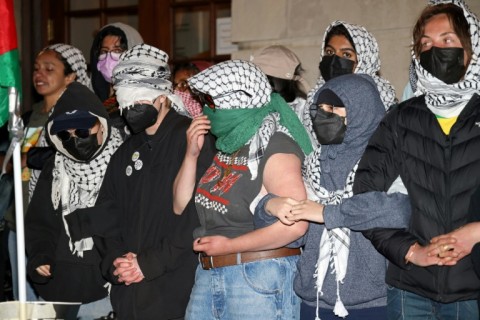
"The US and Egypt and Qatar all have very strong interests of their own, for various reasons, why they're trying very hard now to pressure both sides into agreeing to a deal."
A source with knowledge of the negotiations said Israel's proposal contained "real concessions" including a period of "sustainable calm" following an initial pause in fighting.
- 'More rubble than Ukraine' -
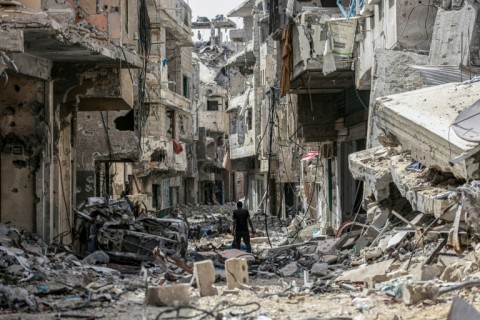
The war started after Hamas's October 7 attack on southern Israel resulted in the deaths of 1,170 people, mostly civilians, according to an AFP tally based on Israeli official figures.
The militants also took about 250 hostages. Israel estimates that 129 captives remain in Gaza, but the military says 34 of them are dead.
Israel's massive retaliatory offensive has killed at least 34,568 people in Gaza, mostly women and children, according to the health ministry in the Hamas-run territory.
Widespread bombing has left Gaza filled with "more rubble than Ukraine", a UN agency said, warning that clearance efforts will be hampered by unexploded ordnance and toxic asbestos.
Israel also imposed a siege on Gaza's 2.4 million people that has sharply restricted access to food, drinking water, medicines, fuel and power.
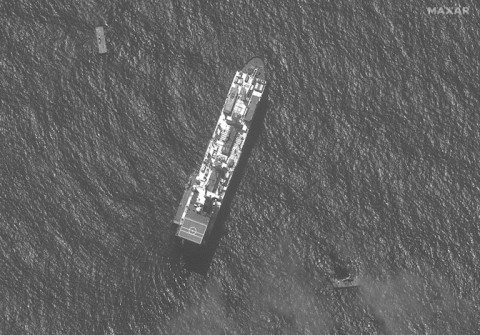
UN agencies have warned that without urgent intervention, famine looms in Gaza, particularly in northern areas which are hardest to reach, and the United States has also strongly urged Israel to speed up relief good deliveries.
Blinken acknowledged Wednesday that aid deliveries had increased but "reiterated the importance of accelerating and sustaining that improvement," Miller said.
A US-built floating pier off Gaza's coast is expected to be completed soon, intended to receive aid shipments via the Mediterranean island-nation of Cyprus.
Blinken earlier said the pier would "significantly increase the assistance" -- but also that it would not be "a substitute" for greater overland access for truck convoys.
On Tuesday, Blinken saw off a Jordanian aid convoy that was heading to the newly reopened Erez crossing between Israel and Gaza.
He was later due to visit the Israeli port of Ashdod near Gaza that was recently reopened for aid.
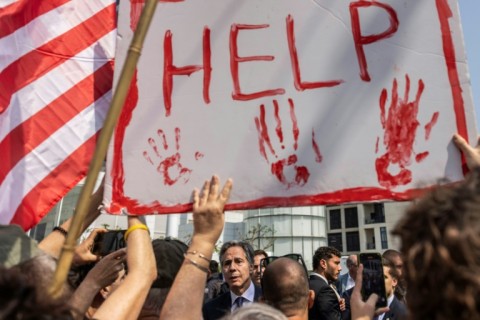
In rare scenes for the top US diplomat, who has faced furore over Washington's support for Israel, Blinken was greeted in Tel Aviv by Israeli demonstrators waving US flags and chanting, "Thank you, Biden! Thank you, Blinken!"
Many of the families have expressed hope that US pressure may force Netanyahu to agree a deal for their release.
Blinken told them that freeing the hostages is "at the heart of everything we're trying to do".
By Shaun Tandon And Nina Larson

